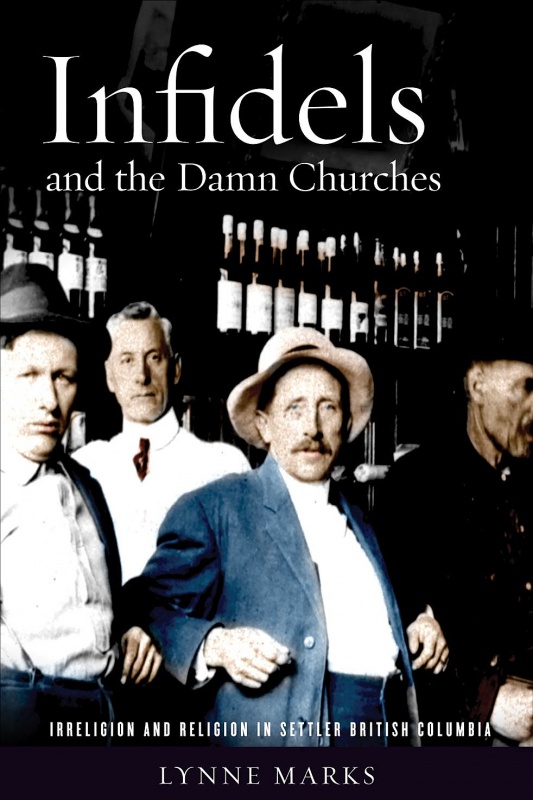50 Years, 50 Books: Infidels and the Damn Churches
Posted: Friday, March 18, 2022
As a way to celebrate our anniversary, Acquisitions Editor Randy Schmidt reached out to fifty UBC Press authors and asked them to talk about their favourite UBC Press book. This is what we heard.
Written by Jonathan Swainger
There is something about the timing of a book’s arrival. Lynne Marks’ splendid Infidels and the Damn Churches had, for me, exquisite timing. At the time it appeared in my mailbox, I was waist-deep in my own research about crime and community identity in the northern interior and Marks seemed destined to turn into a near constant companion. For while her emphasis is largely on the southern interior, she provided me with a vantage point to understand what it was I was encountering further north. In a fashion, she presented an image of what the northern interior – then so recently opened up to white settlers – was becoming. She had charted the terrain and left markers and beckons to guide those who followed. In doing so, she opened my eyes to the presence and contribution of social service clubs in these communities, often enough, in the place traditionally occupied by ‘the damn churches.’ Suddenly, the Odd Fellows, the Orangemen, the Freemasons, and the Knights of Pythias made sense or, perhaps, more honestly, appeared to be less peculiar to twenty-first–century sensibilities. Underlined sections and marginalia now mark almost every page in a fascinating and engaging exploration of a complex society. Her account touches a tantalizing assortment of players, enthusiasms, reactions, and devotions. We see religiosity, racism and white superiority, workingmen’s associations, Indigenous peoples, unions, missionaries, liquor, the bold personalities of so-called frontier life, as well as the nuanced measures of respectability and decency. It is an endlessly human book that, in my reading, offers not just an admirable example of the historian’s craft but one that retains the power to intrigue, amuse, and provoke.
Jonathan Swainger is a history professor at the University of Northern British Columbia and is currently completing a book length manuscript on crime and community identity in Prince George, BC, from 1900 to 1925.

